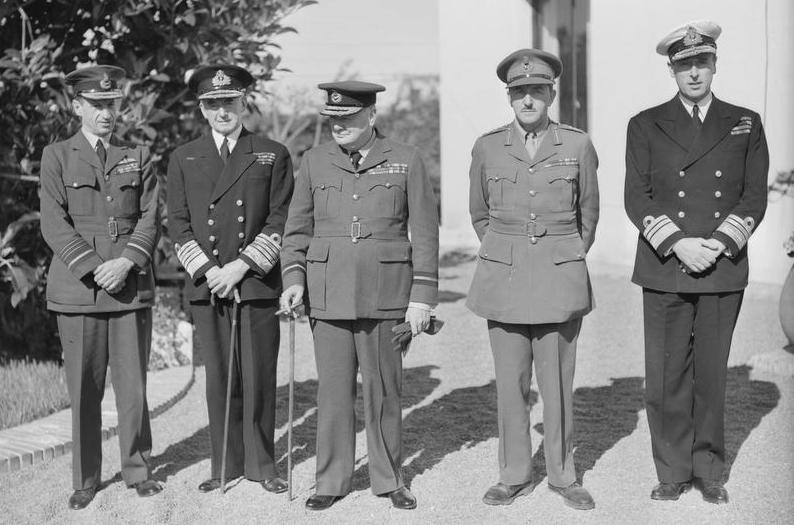
Winston Churchill’s Rule of Criticism after the Fact
Q: On criticism
A piece in the Wall Street Journal was entitled, “Once Again, Churchill Sets a High Standard.” It explained that Churchill “had a rule of never criticizing a policy after the event unless he had given his opinion before.” Did he really have such a rule? —M.M., Cleveland
A: Churchill’s rule
The Journal could say that on good authority.
In the third paragraph of his preface to The World Crisis, Churchill writes:
I have made no important statement of fact relating to naval operations or Admiralty business, on which I do not possess unimpeachable documentary proof. I have made or implied no criticism of any decision or action taken or neglected by others, unless I can prove that I had expressed the same opinion in writing before the event…. In every case where the interests of the State allow, I have printed the actual memoranda, directions, minutes, telegrams or letters written by me at the time, irrespective of whether these documents have been vindicated or falsified by the march of history and of time. The only excisions of relevant matter from the documents have been made to avoid needlessly hurting the feelings of individuals, or the pride of friendly nations.[1]
Second World War memoirs
In the third paragraph of his preface to The Gathering Storm, Churchill writes:
I have adhered to my rule of never criticising any measure of war or policy after the event unless I had before expressed publicly or formally my opinion or warning about it. Indeed in the after-light I have softened many of the severities of contemporary controversy. It has given me pain to record these disagreements with so many men whom I liked or respected; but it would be wrong not to lay the lessons of the past before the future.[2]
I provide the second quote in full context because it shows Churchill’s characteristic collegiality. That is something sadly lacking in today’s political discourse. Churchill’s practice, wrote Sir John Keegan, invested “the whole history with those qualities of magnanimity and good will by which he set such store, and the more so as it deals with personalities.”[3]
Qualifications and afterthoughts
The World Crisis and The Second World War comprise Churchill’s formal memoirs of the two great cataclysms of the past century. They were written 25 years apart. Yet it seems reasonable to consider the precept he expressed in both as his “rule of criticism.”
Cynics might rightly observe that Churchill was often on both sides of major issues: Free Trade, India, Soviet Russia. Thus he could cite the side which suited his later memoirs. That is true, but in time he usually ended up with the right conclusion. William Manchester beautifully captures this quality:
Churchill, however, always had second and third thoughts, and they usually improved as he went along. It was part of his pattern of response to any political issue that while his early reactions were often emotional, and even unworthy of him, they were usually succeeded by reason and generosity. Given time, he could devise imaginative solutions. Russia [in 1919-21] had been more than he could handle—though it should be remembered that he would have been content to see a socialist regime there provided it renounced wholesale slaughter. But his record had been impressive in South Africa, the Middle East, and Ireland. He was prepared [in 1930-35] to accept provincial self-government in India provided Britain retained certain rights of “paramountcy,” including control of foreign affairs, communications, and defense. What he could not overlook was that India, Gandhian satyagraha notwithstanding, was a land of violence.[4]
Endnotes
[1] Winston S. Churchill, The World Crisis, vol. 1, 1911-1914 (London: Thornton Butterworth, 1923, 6-7).
[2] Winston S. Churchill, The Second World War, vol. 1, The Gathering Storm (London: Cassell, 1948), xi.
[3] John Keegan, quoted in Richard M. Langworth, “A Connoisseur’s Guide to the Book of the Century,” in Finest Hour 108, Autumn 2000, 42.
[4] William Manchester, The Last Lion: Winston Spencer Churchill, vol. 1: Visions of Glory 1874-1932 (Boston: Little Brown, 1983, 844-45.
Further reading
“Wikipedia: Churchill’s World War Accounts, History of Memoirs?,” 2022







One thought on “Winston Churchill’s Rule of Criticism after the Fact”
Great Summary. I’m glad you specify the source and page# as well. Congrats to your readers for asking important questions and investigating the sources of info they read.
Comments are closed.